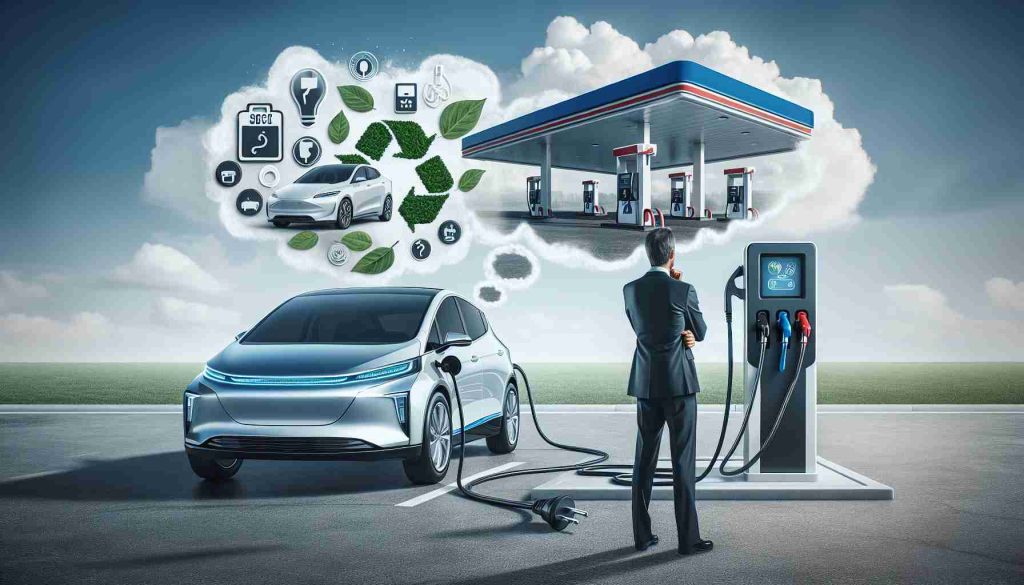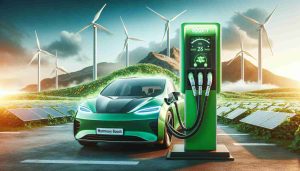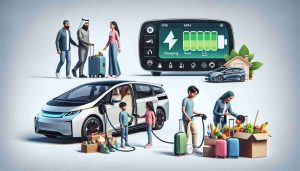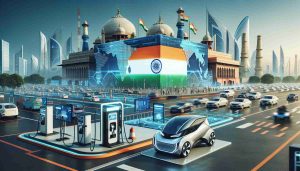Thinking of Going Electric? Here’s Why You Should
5 min read
As electric vehicles (EVs) gain popularity, many are curious about making the switch from traditional gas-powered cars. A Reddit conversation recently sparked interest on what drives current EV owners to embrace this change.
Cost savings emerged as a key motivator for many. One individual shared how their monthly expenses for charging amount to just $40, highlighting the substantial reduction compared to fueling a conventional vehicle.
Beyond financial benefits, users emphasized quality and reliability. Many found that after test-driving various EVs, they were pleasantly surprised by the superior performance and user experience compared to internal combustion engine alternatives. With cutting-edge technology and luxurious interiors crafted from sustainable materials, these vehicles promise not just efficiency but also a more enjoyable driving experience.
Concerns about the environment were also prevalent. Numerous participants expressed their commitment to reducing fossil fuel reliance, pointing out that EVs significantly lower air pollution over their lifespan, directly benefiting public health—especially among vulnerable populations like children.
For those considering a transition, commenters reassured them that now is an excellent time to go electric. The necessary charging infrastructure continues to expand, and various government incentives make the switch even more appealing.
In sum, the journey toward sustainable driving is more accessible than ever, and EVs promise not just savings but a positive contribution to the planet.
Driving Change: The Broader Impact of Electric Vehicles
As electric vehicles (EVs) reshape the automotive landscape, their influence extends far beyond the individual owner. The societal shift towards EVs signals a profound transformation in our cultural attitudes, especially concerning sustainability and technological integration in daily life.
The rising adoption of EVs plays a significant role in the global economy, where the automotive industry is increasingly aligning with environmental goals. In 2021 alone, global EV sales surged by 108%, a trend predicted to continue as manufacturers ramp up production capabilities. This surge not only amplifies competition in the market but also encourages traditional automakers to invest heavily in electric technologies. The ripple effect enhances job creation in renewable energy sectors and associated industries, fostering economic resilience.
Moreover, the environmental implications of widespread EV adoption are considerable. By transitioning to electric power, societies can substantially reduce greenhouse gas emissions and reliance on fossil fuels, paving the way for cleaner urban air. With cities like Amsterdam leading the charge in integrating EVs, these shifts promote enhanced public health outcomes and biodiversity preservation.
Looking forward, a universal charging infrastructure is pivotal. As more charging stations become available globally, the feasibility of owning an EV expands, encouraging even wider adoption. The long-term significance of this technological shift lies in instilling a culture of innovation that prioritizes sustainability without sacrificing convenience, potentially reshaping industries and lifestyles for generations to come. Embracing EVs isn’t just an automotive choice; it’s a commitment to a healthier planet and a sustainable future.
Why You Should Make the Switch to Electric Vehicles Today!
The Rise of Electric Vehicles: A Comprehensive Insight
As the automotive industry evolves, electric vehicles (EVs) have captured the attention of environmentally conscious consumers and tech-savvy drivers alike. With numerous incentives and innovations in the market, now is an excellent time to consider making the switch from conventional gas-powered cars to EVs.
# Cost Savings: A Major Incentive
One of the primary advantages of owning an electric vehicle is the significant cost savings associated with charging versus traditional fueling. On average, many EV owners report charging costs around $40 per month, a drastic decline compared to their previous gasoline expenditures. This financial benefit not only includes lower fuel costs but may extend to reduced maintenance expenses, as electric drivetrains typically require fewer repairs.
# Quality and Performance That Impress
Many EV owners have discovered that the driving experience with electric vehicles is unparalleled. Test drives reveal that EVs often outperform their gas-powered counterparts, providing instantaneous torque and smoother acceleration. Additionally, electric vehicles boast sophisticated technology features and luxurious interiors made from sustainable materials, enhancing overall comfort and enjoyment.
# Environmental Impact: A Commitment to Sustainability
Environmental concerns are at the forefront of many consumers’ minds. Switching to an electric vehicle significantly decreases greenhouse gas emissions and air pollutants, contributing to cleaner air and a healthier community. This commitment to sustainability resonates particularly with those striving to reduce their carbon footprint and promote cleaner energy solutions.
# Expanding Infrastructure and Government Incentives
The charging infrastructure for electric vehicles is rapidly developing, making it easier for consumers to transition to EVs. Numerous cities and regions are investing in public charging stations, ensuring drivers have access to convenient charging options. Furthermore, various government incentives and rebates are available, lowering the overall cost of purchasing an electric vehicle and promoting this sustainable alternative.
# Use Cases: Who Are Electric Vehicles For?
Electric vehicles cater to a wide range of consumers, including:
– Urban Commuters: For those who drive short distances daily, EVs offer ample range and low operating costs.
– Families: With spacious interiors and technology features for entertainment and convenience, EVs are ideal for family outings.
– Eco-conscious Buyers: Individuals committed to environmental sustainability choose EVs to support their lifestyle choices.
# Limitations to Consider
While the benefits of EVs are substantial, potential buyers should also be aware of certain limitations:
– Range Anxiety: Some consumers express concerns over the driving range of electric vehicles, especially on longer trips. However, advances in battery technology are continually improving range.
– Charging Time: While charging infrastructure is growing, it often requires more time than refueling a gasoline vehicle, which can be a consideration for some drivers.
# Pricing Trends and Market Analysis
The pricing of electric vehicles is becoming increasingly competitive. According to industry reports, the average price of EVs has been decreasing as manufacturers scale production and consumers’ demand rises. This trend is expected to continue, making EVs more accessible to the average consumer.
# Innovations in Electric Vehicle Technology
Technological advancements play a crucial role in the growth of electric vehicles. Innovations in battery technology are resulting in longer ranges, faster charging times, and improved overall vehicle performance. Additionally, the integration of smart technology features enhances the user experience and adds to the appeal of EV ownership.
# Conclusion: The Future of Driving is Here
As electric vehicles continue to evolve and meet the demands of consumers, the prospect of driving an electric vehicle becomes increasingly appealing. With a commitment to sustainability, significant cost savings, and advancements in technology, now is indeed a prime time to consider making the switch to electric.
For more information on how to transition to an electric vehicle and to explore the latest market trends, visit Edmunds.



